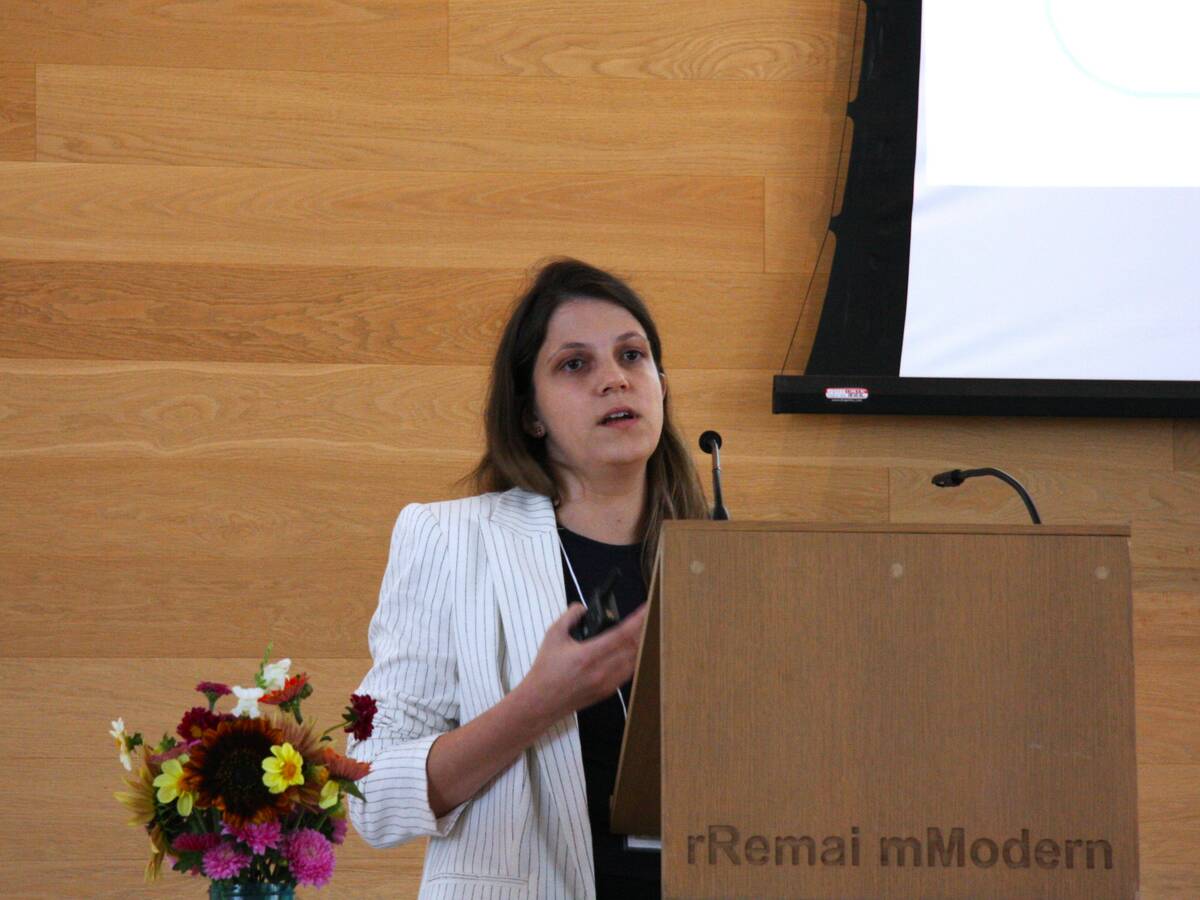Financial incentives lacking Methane sales to energy grid necessary to make manure management system profitable for farmers
A lack of financial incentives has dampened Canadian interest in a farm-scale bio-digester designed by a Quebec company and sold around the world, says a product promoter.
Elise Villeneuve, chief operating officer for Bio-Terre Inc., told the Senate agriculture committee that the system successfully removes pathogens and odour from farm manure, produces a fertilizer that can be spread with little risk of contamination and produces methane that can be an energy source.
However, to make it profitable for a farmer, the methane must be sold into the energy grid, and that doesn’t happen in most Canadian jurisdictions.
Read Also

Fusarium head blight mycotoxin detector in the works
A PhD student at the University of Saskatchewan has been working on developing a method of detecting fusarium damaged kernels to ease the struggles of producers, agronomists and industry.
“Anaerobic digestion is definitely a great opportunity for the agriculture industry,” Villeneuve told senators involved in a long-term study of agricultural research and innovation.
“It is a success elsewhere in the world and it is growing fast in many countries. Unfortunately in Canada, we have not picked up the pace yet for this.”
Villeneuve said the patented product is used in the United States and some European countries. It was developed after engineering firms in Quebec and Manitoba created Bio-Terre Inc. in 1998 and spent six years testing the system on hog farms in the two provinces.
By 2009, the system was breaking into American farm operations.
But in Canada, there is not a proper “policy context” to make it successful, she said.
“Countries with a successful anaerobic digestion industry rely on energy buy-back programs and policies to encourage and simplify the deployment of the systems,” she said. “Farmers need to be encouraged and supported financially and administratively.”
Villeneuve said that has not happened in Canada.
She cited the example of a Vermont farm that increased its revenues to $270,000 from $70,000 with a bio-digester and a deal to sell the produced methane into the state energy grid.
The state has a “cow power” policy that requires electricity consumers to pay higher rates to support environmental use of farm waste.
“People want to pay more because they are encouraging the practice,” she said.
“They are paying more on their bill, a small amount, but because of that, there are 100 farms that have digesters now and they sell to the grid.”
Manitoba senator JoAnne Buth wondered why Canadian farmers have not invested in the technology for its environmental benefits.
“There are benefits, even if they are not selling to the grid, but I do not think it is worth it,” said Villeneuve.
“When you look at countries where this is successful, they have financial benefits in addition to environmental benefits. I have been in the environment business all my career and I am sorry to say that we still do not want to do environmental just to do it and pay for it unless there is a strict regulation that forces you to do it.”
She said farmers need a financial reason to spend thousands of dollars on a bio-digester.
“The benefits are reselling the methane and potentially reselling part of the dry product of the digestate, a nutrient that can be bagged and sold, and it is creating another revenue stream for the farm.”
In an interview, Villeneuve said Canadian bio-energy policy is too fixated on investment in industrial ethanol plants when incentives for on-farm projects can be as effective and provide other environmental benefits.
“I really think our policy should include smaller on-farm projects.”














